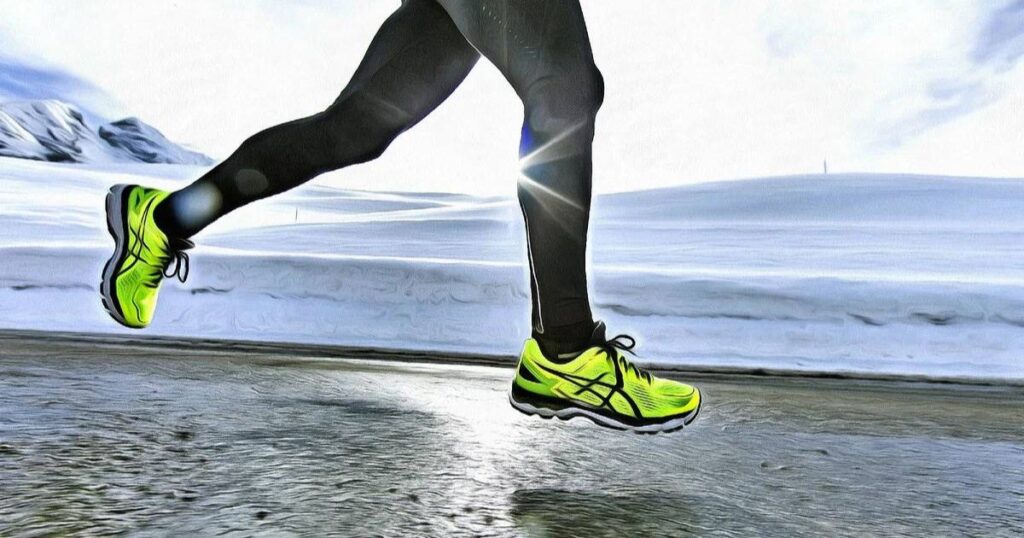When it comes to athletic footwear, choosing the right pair of shoes is paramount. Whether you’re a seasoned athlete or just starting your fitness journey, having the appropriate shoes can make a significant difference in your performance and overall comfort. One question that often arises is whether basketball shoes can be used for running. It’s a query that can be quite perplexing, and the answer is not as straightforward as one might think.
In this article, we will delve into the world of sports shoes, exploring the key differences between basketball and running shoes, and whether basketball shoes can serve as a suitable alternative for running. We’ll analyze the various aspects of both types of footwear, including design, cushioning, support, and traction, to help you make an informed decision about whether to lace up your basketball kicks for a run. So, if you’re curious about the compatibility of basketball shoes with running and want to know the potential pros and cons, keep reading.
Understanding Basketball Shoes
Before we dive into the debate about whether basketball shoes can double as running shoes, let’s first understand what makes basketball shoes unique. These shoes are designed specifically for the demands of basketball players, which involve quick lateral movements, jumping, and the need for excellent ankle support. Here are some key features of basketball shoes, along with tips on how to clean basketball shoes:
High-Top Design
Most basketball shoes feature a high-top design, which extends above the ankle. This design provides extra support and helps prevent ankle injuries, which are relatively common in basketball due to the sudden changes in direction and jumps.
Cushioning
Basketball shoes often come with ample cushioning, especially in the heel and forefoot areas. This cushioning is intended to absorb shock from high-impact activities, such as jumping and landing.
Traction
Traction is a crucial element in basketball shoes, as players need to make quick lateral movements, cuts, and pivots. The outsoles of basketball shoes typically have a herringbone or multidirectional pattern to provide grip on the hardwood court.
Durability
Given the physical nature of basketball, the shoes are designed to be durable and withstand the rigors of the game. They often have reinforced toe caps and sturdy materials.
Style
Basketball shoes are known for their stylish and often flashy designs, making them a popular choice for sneaker enthusiasts and basketball fans alike.
The Anatomy of Running Shoes
Now, let’s shift our focus to running shoes. These shoes are engineered with the specific needs of runners in mind. The key features of running shoes include:
Low-Top or Mid-Top Design
Unlike basketball shoes, running shoes typically have a low-top or mid-top design. This design allows for greater freedom of movement in the ankle and is geared towards reducing weight and promoting forward motion.
Cushioning
Running shoes also come with cushioning, but the emphasis is on shock absorption during the repetitive motion of running. The cushioning in running shoes is spread throughout the midsole to provide a smooth and comfortable ride.
Traction
Traction in running shoes is designed for forward movement and is less aggressive compared to basketball shoes. Running shoe outsoles usually feature a variety of patterns to provide grip on different terrains.
Breathability
Since running generates a lot of heat, breathability is a key feature in running shoes. They are often constructed with lightweight, breathable materials to keep the feet cool and dry.
Weight
Running shoes are typically lighter than basketball shoes to reduce the energy expenditure of each step and promote efficient running.
The Debate: Can Basketball Shoes Be Used for Running?
Now that we’ve outlined the distinctive features of both basketball and running shoes, it’s time to address the question: Can you use basketball shoes for running? The answer is not a simple “yes” or “no” but rather a nuanced exploration of the pros and cons.
Pros of Using Basketball Shoes for Running
Ankle Support: The high-top design of basketball shoes can provide excellent ankle support, which can be beneficial for individuals with weak or injury-prone ankles.
Cushioning: Basketball shoes often come with ample cushioning in the heel and forefoot, which can be comfortable during running, especially for those who prefer a well-cushioned feel.
Durability: Basketball shoes are built to withstand the physical demands of basketball, so they tend to be durable. This durability can translate into a longer lifespan for running shoes.
Cons of Using Basketball Shoes for Running
Weight: Basketball shoes are generally heavier than running shoes due to their reinforced materials and high-top design. This added weight can lead to increased fatigue during long-distance runs.
Traction: While basketball shoes have excellent traction for court movements, they may not perform as well on various terrains encountered during outdoor running. Running shoes are specifically designed for optimal grip on running surfaces.
Breathability: Running shoes are engineered to keep your feet cool and dry during long runs. Basketball shoes, with their less breathable design, may lead to sweaty and uncomfortable feet.
Style: While some individuals appreciate the style of basketball shoes, others may find them less suitable for everyday or recreational running.
| Section | Subsection | Pros and Cons |
| Pros of Using Basketball Shoes for Running | Ankle Support | – High-top design provides excellent ankle support. – Beneficial for individuals with weak or injury-prone ankles. |
| Cushioning | – Ample cushioning offers comfort, suitable for those who prefer a well-cushioned feel. – May be beneficial during running. | |
| Durability | – Built to withstand the physical demands of basketball, resulting in longer lifespan for running. | |
| Cons of Using Basketball Shoes for Running | Weight | – Generally heavier than running shoes, leading to increased fatigue during long-distance runs. |
| Traction | – Traction designed for court movements may not perform well on various terrains encountered during outdoor running. | |
| Breathability | – Less breathable design may lead to sweaty and uncomfortable feet during runs. | |
| Style | – May not be suitable for everyday or recreational running for those who don’t appreciate the basketball shoe style. |
The Importance of Proper Footwear for Running

It’s essential to understand that the choice of footwear is not just a matter of personal preference but also a matter of safety and performance. Here are some key considerations for selecting the right shoes for running:
Biomechanics
Your individual biomechanics play a crucial role in the choice of running shoes. Factors such as your arch type (flat, neutral, or high), pronation (overpronation, underpronation, or neutral), and gait pattern all impact the type of cushioning and support you need.
Terrain
Consider where you’ll be running. If you plan to run on pavement, trails, or uneven terrain, it’s essential to choose shoes that offer the appropriate traction and stability.
Distance and Intensity
The distance and intensity of your runs also matter. For long-distance running, lightweight and well-cushioned running shoes are often preferred. For shorter sprints or workouts, more versatile shoes may suffice.
Comfort
Comfort is a paramount factor in running shoes. Your shoes should fit well, have the right amount of cushioning, and support your feet adequately to prevent discomfort and potential injuries.
When Can You Use Basketball Shoes for Running?
While using basketball shoes for running isn’t generally recommended due to the differences in design and purpose, there are some scenarios where it might be acceptable:
Casual Running: If you plan to run casually or intermittently, using basketball shoes may not be a significant issue. Just be aware of the potential drawbacks.
Rehabilitation: In some cases, individuals recovering from ankle injuries or seeking extra ankle support might find that basketball shoes serve their needs well.
Cross-Training: If you’re participating in a cross-training routine that involves a combination of activities, including some running, basketball shoes can be versatile enough to accommodate both.
Sprinting: For short sprints and agility drills, the additional ankle support in basketball shoes might prove advantageous.
The Bottom Line
In the debate of whether basketball shoes are good for running, the answer isn’t a simple “yes” or “no.” It
depends on your specific needs, preferences, and the intended purpose of your athletic activities.
Basketball shoes can offer excellent ankle support and cushioning, which may be advantageous for certain runners, particularly those with ankle issues. However, they also come with drawbacks, such as added weight and reduced breathability. The choice ultimately boils down to a trade-off between support and comfort versus performance and efficiency.
If you’re a serious runner or plan to engage in regular and longer-distance running, investing in a pair of specialized running shoes is highly recommended. Running shoes are designed to provide the cushioning, traction, and breathability needed for the specific demands of running.
FAQs
Can you run in basketball shoes?
Yes, but they’re not ideal for running due to their weight and less breathability.
Are basketball shoes good for ankle support?
Yes, they offer good ankle support, which can help during runs for those with weak ankles.
Should I use basketball shoes for long-distance running?
No, running shoes are a better choice for comfort and performance in long runs.
conclusion
In conclusion, the question of whether basketball shoes are good for running is an important one, and the answer depends on your specific needs and preferences.
Basketball shoes are designed for quick lateral movements, ankle support, and cushioning to absorb the impact of jumping and landing. While they excel on the court, they may not be the ideal choice for running long distances. The high ankle support that helps prevent sprains in basketball can feel restrictive during a run, potentially hindering natural foot movement.
However, if your running involves short sprints or agility drills, basketball shoes can provide the necessary traction and stability. Some athletes even find them comfortable for brief jogging sessions. Ultimately, the suitability of basketball shoes for running varies from person to person, and it’s essential to consider your unique requirements when making a choice. So, whether you’re a runner, a basketball player, or both, carefully assess your needs and comfort to determine if basketball shoes are the right fit for your running endeavors.



